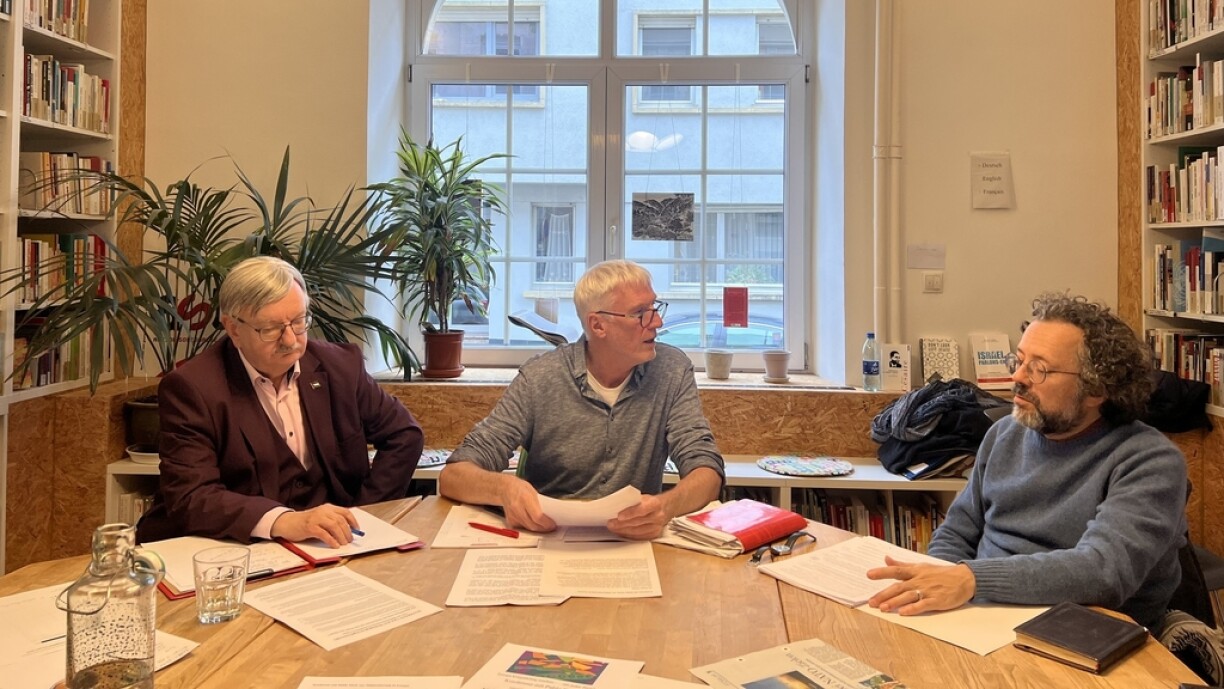
The European Union plans to invest up to 800 billion euros in defence and comprehensive military armament by 2030. Through its Readiness 2030 programme, the EU aims to respond to current global political uncertainties.
The goal is to strengthen Europe’s military independence and build a joint European defence industry, reducing reliance on other major powers.
This is precisely where criticism from the Luxembourg collective ‘5 pour cent c’est NON’ (‘5 per cent is NO’) arises. The movement opposes the planned militarisation of Europe, particularly the EU’s Readiness 2030 initiative. With a manifesto, the collective seeks to send a clear signal against the European Union’s current defence policy.
The name of the collective is symbolic, representing the rejection of a policy that foresees an ever-increasing budget – up to five per cent of GDP – for armament. Entitled “No to the militarisation of the European Union – Manifesto against rearmament”, the text aims to make a firm statement.
Among other things, the manifesto questions how much Luxembourg and Europe should continue to invest in defence, and whether there are alternatives to rearmament.
Jean-Claude Tümmel, a member of the collective, said the aim of the manifesto is to open a wider conversation and engage with others. “We already have a number of signatures from civil society,” he noted, adding that the group hopes to “start a proper debate” and will soon discuss with supporters what the next steps should be.
The argument that Europe must defend itself against Russian threats and strengthen its defence strategy is not accepted by the collective. Tümmel noted that defence spending among European NATO countries rose by 39 per cent between 2014 and 2022, reaching 168 billion euros, arguing that resources would be better spent on the environment, health, and education.
“We do not believe we currently need many more weapons, but rather much more money to prepare for climate change, more for social measures, and for health,” Tümmel said.
The collective also points directly to Luxembourg. The government has committed, in its coalition agreement, to increase military spending to 2 per cent of GDP by 2030. According to NATO, this figure should reach 5 per cent of GDP by 2035.
At the same time, the working group Lux4Defense has been established to ensure that money invested in defence flows back into the Luxembourg economy. Alain Sertic, another member of the collective, said these decisions are being made without transparency and bypassing the population.
“These people want to invest money where profit will eventually come out of it,” Sertic explained, warning that Luxembourg could become a hub for the arms trade and military development – an issue he believes must be brought to public attention and made part of a democratic debate.
By defining itself as a military power, the European Union is, according to the collective, renouncing the possibility of assuming a truly independent diplomatic role. By aligning itself with NATO’s strategy, it continues the logic of confrontation and closes the path to diplomacy, disarmament, and peace.